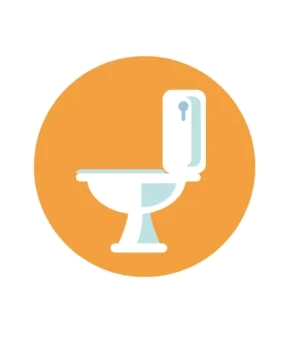


ALL CLEAR HOME INSPECTIONS


ALL CLEAR HOME INSPECTIONS

All Clear Home Inspections
Meticulous. Knowledgeable. Thorough.
For your security and peace of mind
Serving the Austin Texas metro since 2005
SERVICES
Your All Clear Home Inspection includes a thorough examination of all internal & external systems possible, from roof to foundation & everything in between.
Our inspector’s commitment to you includes:
- Same-day reports, including most findings digitally illustrated with color pictures
- Layman-friendly on-site explanation of all of our important findings at time of inspection
- After-inspection consultation by phone or email as desired
- Coordination with some other 3rd party inspections such as wood-destroying insect inspector or pool inspector
A termite inspection is recommended as part of your complete home inspection, but is not included in inspection or performed by All Clear.
We are happy to provide you with a list of termite inspectors we’ve worked with, and coordinate common timing with your termite inspector.
Termite inspections are not a service of All Clear Home Inspections; all contracting & fees for termite inspection should be handled directly with the termite inspector at time of service.
Pricing Schedule
- Minimum residential home inspection charge (up to 2000 sq ft) **additional fee for older homes or driving distance may be applied $420
- Duplex Inspection add $200
- Condo inspection call for price
- Detached structures (w/electrical) depends on size add $60
- Re-inspections (as schedule allows, price depends on scope) $175
- Sprinkler System add $70
Additional Inspections
- Termite Inspection $95+tax (add'l fee for distance & size)
- Pool inspection $100 (depends on 3rd party provider)
These services are not provided by All Clear, and pricing should be considered an estimate. Ask us for referral to inspectors we trust!Meet the Inspector
Gary has been inspecting homes since 2005, and has decades of construction and remodeling experience to inform and hone his eagle eye.In his 15 years of inspecting , he has completed approximately 4000 inspections in dozens of Texas counties, and includes houses from the 1900’s to new construction, shacks to mansions, with a wide variety of wiring, plumbing, foundations & systems.
His well-earned professional reputation is for
- meticulous attention to detail
- respectable knowledge of building codes
- insatiable curiosity which won't stop researching until he can explain his findings
- and tip-to-toe reporting on every aspect of your house, resulting in 30-60 page reports well documented with pictures.
Buyers love him. Seller's agents hate to see him coming.
But he often converts sellers and their agents into future clients--after Gary's inspected and pointed out so much about your current house, you know you need him to do exactly that for your next one!
Professionally, Gary is
- licensed as a Professional Home Inspector through TREC (license #8515),
- a Professional Inspector member in good standing with TPREIA (Texas Professional Real Estate Inspectors Association),
- a Greater Austin TPREIA chapter board member
- an active member of InterNACHI (International Association of Certified Home Inspectors).
Gary believes strongly in elevating the profession by supporting and nurturing fellow inspectors, and periodically gives inspector training presentations, as well as individually mentoring new inspectors.
He appears on the preferred vendor lists of many of Austin’s premiere agents. He would love to discuss being the inspector you refer out as well.
TREC #8515
So What Will Be Inspected?
Here are some things we look at!

Electrical Systems
The inspection of the electrical system is a visual observation of the various components of this system. Electrical panels will be inspected externally and internally and all light switches, unused receptacles, and fixtures will be tested. Faceplates on receptacles, switches and others are not required to be removed unless aluminum wiring is noted. If any item is deemed unsafe for testing, it is reported as such and is typically recommended for further review by a licensed electrician.
Common electrical items of interest:
- Aluminum wiring
- Older (out of date) electrical panels and wiring
- Unsafe wiring practice
- Lack of grounding/bonding of the system and metal components
- Potential fire hazards.
A note on GFCI and AFCI
Per Texas Real Estate Commission Standards, we are required to point out the current requirements for GFCI (Ground Fault Circuit Interrupter) and AFCI (Arc Fault Circuit Interrupter) protection, even if a house predates the newest electrical requirements. As a result, comments concerning this protection will typically show up on all reports.
GFCI protection is required at all wet/damp areas or where contact with water is likely (i.e. kitchen countertops, exterior, garage, bathrooms, near sinks, pools, etc). This protection when present results in a reduced likelihood of electrical shock to the user. AFCI protection is now required in most living spaces on the inside of the house . AFCI type breakers protect against conditions which are likely to produce an arcing of current (spark) from a hot conductor to neutral or ground or damage to a hot conductor itself.

Plumbing
The inspection of the plumbing system includes a visual observation of the various components as well as an operating test of all fixtures. Water heater installation will be observed and tested, whether it is a gas model or electric. Water softeners, filters, and other auxiliary components will not be part of this general inspection, but will be examined for leakage.
Older homes potentially have issues that may not afflict newer homes, such as cast iron, galvanized, and/or lead piping. If these plumbing pipe types are observed during the inspection, an explanatory note will be included in the report to inform the buyer of some of the issues associated with them. The buyer should be aware that these items may be still in use at the time of purchase.
Please note that shutoff valves under sinks, toilets, or other, will not be operated due to the high risk of issues involved with operating such valves. Valves that are not operated daily can break down or leak which could cause damage to the surrounding areas.

Roof and Foundation
The inspector will walk on safe-to-access composition shingle roofs for the most thorough inspection possible. We have walked on many steep roofs, but only if it is felt to be safe to do so. Clay tile, slate, and metal roofs will not be walked upon, but will be viewed from the ground or ladder as possible.
The foundation inspection includes a visual observation of the foundation perimeter for signs of inadequate performance. The external visual inspection, along with other factors–such as how windows and doors operate, cracks in the exterior and interior walls, and cracks visible in the floor or ceiling–will be used to provide an opinion of the foundation’s performance. If any concerns are found, it is typically recommended that the client seek the opinion of a structural engineer licensed in Texas or a reputable foundation specialist for further review.
Please note that all concrete slabs crack, not all cracks are a sign of slab failure, and most slabs can be repaired. During a one-time visit it will not be possible for the inspector to determine the rate of movement; this type of observation should be performed by a licensed engineer.

Heating and Cooling
The heating and cooling system inspection includes operation of the heating unit (furnace or heat pump in most cases) and cooling system (central air or window unit). We also examine the refrigerant lines, ductwork, drain pans, condensate drain lines, burner areas, and evaporator/condenser coils (if visible). Auxiliary equipment such as fresh air intake systems and air filtration systems will not be part of the inspection.
At different times of the year it may not be possible or proper to operate one of these systems. During winter, temperatures outside may not be warm enough to safely operate the cooling system. In this case, it is recommended that the system be reviewed by a licensed HVAC technician to determine the best time to operate the unit for full inspection.

And Much More!
Windows/Doors – all accessible windows and doors will be tested. Any issues will be noted on the report.
Stairways – any stairways will be assessed for safety issues, such as guardrails, handrails, headroom, trip hazards, etc.
Walls – interior and exterior wall surfaces will be observed for structural and installation issues. Small cosmetic issues may not appear on the report. Moisture issues may be reported in these areas as well.
Ceilings/floors – ceiling and floor surfaces will be observed for structural issues.
Moisture issues may be reported in these areas as well.
Fireplaces – visible areas of the fireplace and chimney will be observed. Gas log sets will be lit, if possible.
Decks/Balconies/Porches – Installation and structural issues will be observed.
Credentials and Qualifications:
Your Home Inspector should be knowledgeable about the construction and building industry standards. Does he know the latest inspection standards? Does he use up-to-date software for reporting?
Don’t be afraid to ask for his qualifications & level of experience. A professional home inspection is very important and can add value to your home and peace of mind to the prospective buyer, but your inspection is only as good as the inspector’s skill. At a minimum, inspectors must be fully licensed and insured as required by the Texas Real Estate Commission.Range of Inspection
Determine what exactly the inspection will and will not cover. Most of the time the inspection will cover almost all visible aspects of a house, although some exceptions will apply. If you had several specialists come out to review every aspect of a house, the cost would be tremendous. A general home inspection can find most issues of concern in a single visit. At All Clear Home Inspections, we schedule a separate wood-destroying insect, septic, well, and pool inspection as needed. While these inspections will cost you more upfront, they can save you from spending a lot of money on future repair costs.
Sample Inspection Report Ask for a sample inspection report to get a specific idea of what you will be getting for your money. Is it thorough and detailed? Is there room on the report for written comments and suggestions, or is it just check boxes? Is the report easy to read and understand? Does the report have pictures throughout to help you understand the findings?
References
A home inspector with a great track record will be able to give you recent and previous references. Don’t hesitate to ask us for references! LET'S DO THIS!
Want to get a firm quote?
Need to check availability?
Call or text for fastest response
(512) 296-9191
CONSUMER INFORMATION
Consumers: For a link to the Texas Real Estate Commission Consumer Protection Notice please click the button below
© 2020


